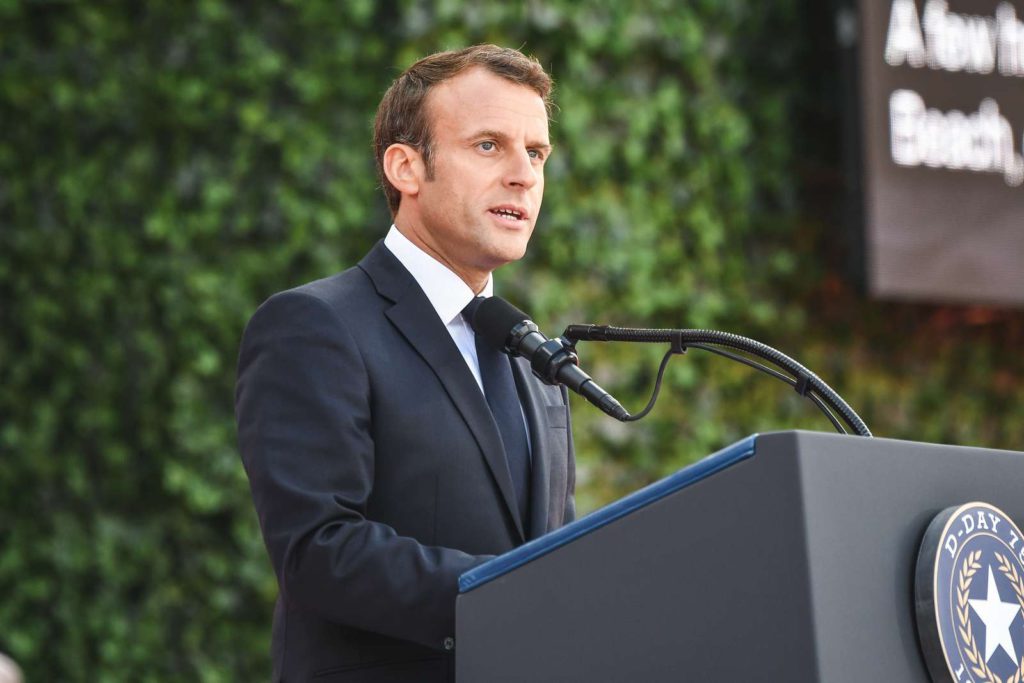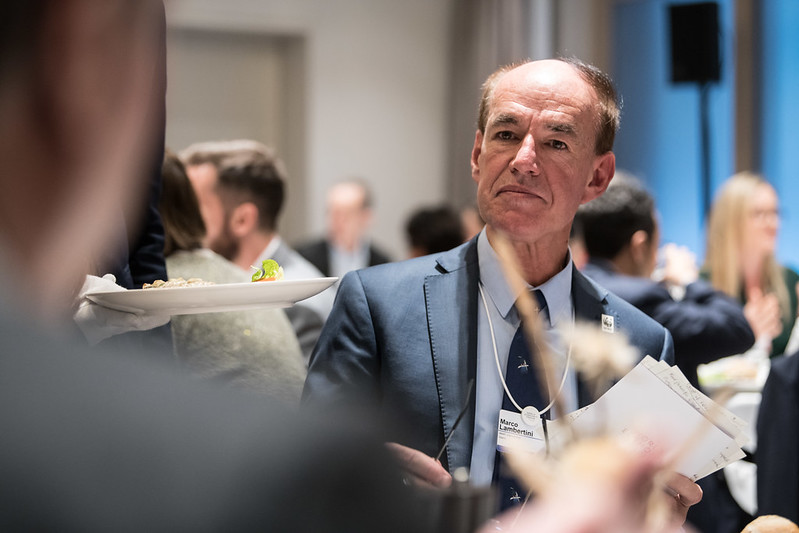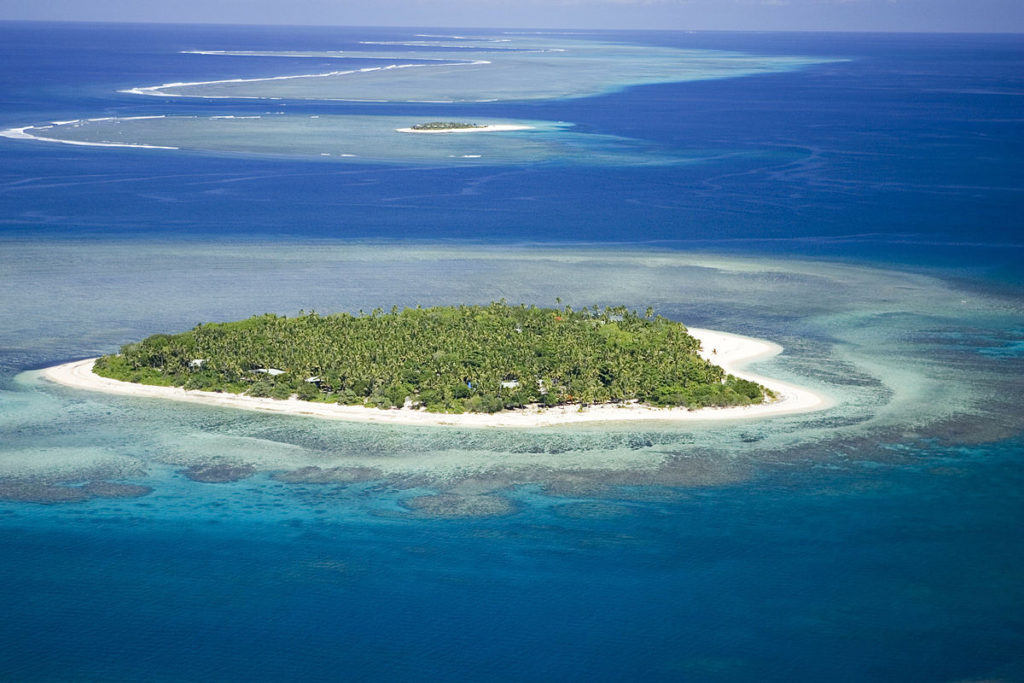Reuters | June 30, 2022 |

French President Emmanuel Macron.
French President Emmanuel Macron said on Thursday a legal framework was needed to stop deep-sea mining from going ahead and urged countries to put their money on science to better understand and protect the world’s oceans.

There is growing international interest in deep-sea mining but there is also pressure from some environmental groups and governments to either ban it or ensure it only goes ahead if appropriate regulations are in place.
Deep-sea mining would involve using heavy machinery to suck up off the ocean floor potato-sized rocks, or nodules that contain cobalt, manganese, and other rare metals mostly used in batteries.
“We have … to create the legal framework to stop high sea mining and to not allow new activities putting in danger these ecosystems,” Macron said at an event on the sidelines of the UN Ocean Conference in Lisbon.
“But at the same time we need to promote our scientists and explorers to better know the high seas… we need to better understand in order to protect,” Macron added.
Although he expressed concerns about deep-sea mining, France holds an exploration contract through the Institut Francais de Recherche pour l’Exploitation de la Mer, valid until June 2026, for a 75,000-square-kilometre (28,958-square-miles) area in the Clarion-Clipperton Zone in the North Pacific rich in polymetallic nodules.
The International Seabed Authority (ISA), a UN body, is drawing up regulations governing seabed mining in the high seas – areas outside any national jurisdiction. Until global rules are in place, seabed mining is not allowed.
Several nations, such as the Pacific islands of Palau and Fiji but also Chile, have called for a global moratorium on all deep-sea mining activities, citing environmental concerns and a lack of sufficient scientific data.
But not all countries are against it. China is a leader in deep-sea mining exploration, and small nations have also gotten involved. The tiny island nation of Nauru last year asked the ISA to fast-track the adoption of seabed mining regulations.
G7 countries last month agreed they would only consent to such mining projects if they did not seriously harm the environment. Peter Thomson, UN Special Envoy for the Ocean, told Reuters he believed regulations to counter those concerns will appear soon.
(By Catarina Demony and Helen Reid; Editing by Sandra Maler)

French President Emmanuel Macron.
French President Emmanuel Macron said on Thursday a legal framework was needed to stop deep-sea mining from going ahead and urged countries to put their money on science to better understand and protect the world’s oceans.

There is growing international interest in deep-sea mining but there is also pressure from some environmental groups and governments to either ban it or ensure it only goes ahead if appropriate regulations are in place.
Deep-sea mining would involve using heavy machinery to suck up off the ocean floor potato-sized rocks, or nodules that contain cobalt, manganese, and other rare metals mostly used in batteries.
“We have … to create the legal framework to stop high sea mining and to not allow new activities putting in danger these ecosystems,” Macron said at an event on the sidelines of the UN Ocean Conference in Lisbon.
“But at the same time we need to promote our scientists and explorers to better know the high seas… we need to better understand in order to protect,” Macron added.
Although he expressed concerns about deep-sea mining, France holds an exploration contract through the Institut Francais de Recherche pour l’Exploitation de la Mer, valid until June 2026, for a 75,000-square-kilometre (28,958-square-miles) area in the Clarion-Clipperton Zone in the North Pacific rich in polymetallic nodules.
The International Seabed Authority (ISA), a UN body, is drawing up regulations governing seabed mining in the high seas – areas outside any national jurisdiction. Until global rules are in place, seabed mining is not allowed.
Several nations, such as the Pacific islands of Palau and Fiji but also Chile, have called for a global moratorium on all deep-sea mining activities, citing environmental concerns and a lack of sufficient scientific data.
But not all countries are against it. China is a leader in deep-sea mining exploration, and small nations have also gotten involved. The tiny island nation of Nauru last year asked the ISA to fast-track the adoption of seabed mining regulations.
G7 countries last month agreed they would only consent to such mining projects if they did not seriously harm the environment. Peter Thomson, UN Special Envoy for the Ocean, told Reuters he believed regulations to counter those concerns will appear soon.
(By Catarina Demony and Helen Reid; Editing by Sandra Maler)
‘Terrifying’: WWF chief hits out at plans to mine the deep sea
Reuters | June 28, 2022

Marco Lambertini, WWF’s director general. Credit: WWF
The World Wildlife Fund’s chief warned on Tuesday that the potential impact of mining the deep sea could be “terrifying” and called for strict regulations to avoid yet another environmental disaster.

There is growing interest in deep-sea mining but there is also pressure from some environmental groups and governments to either ban it or ensure it only goes ahead if appropriate regulations are in place.
Deep-sea mining would involve using heavy machinery to suck up off the ocean floor potato-sized rocks or nodules that contain cobalt, manganese, and other rare metals mostly used in batteries.
“Have we not learned our lesson?” asked Marco Lambertini, WWF’s director general, referring to the environmental impacts of digging for minerals on land. “We simply don’t know what we will unleash by going down hundreds, thousands of meters (feet)to the bottom of the ocean.”
Speaking to Reuters on the sidelines of the UN Ocean Conference in Lisbon, Lambertini said the WWF was confident there would be consequences if plans to excavate mineral deposits from the deep seabed get a green light.
He said it could potentially generate damaging sediment plumes and affect fish migration. Lambertini said authorities should instead look into the “great potential of recycling” e-waste for the materials needed for batteries.
The International Seabed Authority (ISA), a UN body, is drawing up regulations governing seabed mining in the high seas – areas outside any national jurisdiction. Until global rules are in place, seabed mining is not allowed.
‘Everybody’s waters’
WWF has called for a global moratorium on all deep-sea mining activities, and countries such as the Pacific islands of Palau and Fiji launched an “alliance” on Monday to back it.
But not all nations are against it. China is a major proponent and even smaller nations like the tiny Pacific island of Nauru, for instance, asked the ISA last year to fast-track the adoption of seabed mining regulations.
Speaking to Reuters, US climate envoy John Kerry said his country, which has not ratified the UN Convention on the Law of the Sea, has concerns regarding deep-sea mining and is “very wary of procedures that could disturb the ocean floor”.
The United States is not a member of the ISA but has participated as an observer state in negotiations over the regulations.
“We are looking very closely at the proposals and procedures and we will continue to be involved,” Kerry added.
WWF’s Lambertini also said it was “fundamental” that UN member states reach an agreement on a treaty to protect the open seas beyond national jurisdictions, which they failed to do in March this year.
“Today they are nobody’s waters and we need to turn the concept on its head,” he said, explaining that not having a treaty means the high seas are not regulated enough. “They need to become everybody’s waters.”
Member states will meet again in August to discuss the issue and although Lambertini believes there was a “general consensus” on some countries were likely to oppose the long-awaited treaty.
“Without having a common governance mechanism, I think it will be very difficult to coordinate action,” he said.
(By Catarina Demony; Editing by Sandra Maler)

Marco Lambertini, WWF’s director general. Credit: WWF
The World Wildlife Fund’s chief warned on Tuesday that the potential impact of mining the deep sea could be “terrifying” and called for strict regulations to avoid yet another environmental disaster.

There is growing interest in deep-sea mining but there is also pressure from some environmental groups and governments to either ban it or ensure it only goes ahead if appropriate regulations are in place.
Deep-sea mining would involve using heavy machinery to suck up off the ocean floor potato-sized rocks or nodules that contain cobalt, manganese, and other rare metals mostly used in batteries.
“Have we not learned our lesson?” asked Marco Lambertini, WWF’s director general, referring to the environmental impacts of digging for minerals on land. “We simply don’t know what we will unleash by going down hundreds, thousands of meters (feet)to the bottom of the ocean.”
Speaking to Reuters on the sidelines of the UN Ocean Conference in Lisbon, Lambertini said the WWF was confident there would be consequences if plans to excavate mineral deposits from the deep seabed get a green light.
He said it could potentially generate damaging sediment plumes and affect fish migration. Lambertini said authorities should instead look into the “great potential of recycling” e-waste for the materials needed for batteries.
The International Seabed Authority (ISA), a UN body, is drawing up regulations governing seabed mining in the high seas – areas outside any national jurisdiction. Until global rules are in place, seabed mining is not allowed.
‘Everybody’s waters’
WWF has called for a global moratorium on all deep-sea mining activities, and countries such as the Pacific islands of Palau and Fiji launched an “alliance” on Monday to back it.
But not all nations are against it. China is a major proponent and even smaller nations like the tiny Pacific island of Nauru, for instance, asked the ISA last year to fast-track the adoption of seabed mining regulations.
Speaking to Reuters, US climate envoy John Kerry said his country, which has not ratified the UN Convention on the Law of the Sea, has concerns regarding deep-sea mining and is “very wary of procedures that could disturb the ocean floor”.
The United States is not a member of the ISA but has participated as an observer state in negotiations over the regulations.
“We are looking very closely at the proposals and procedures and we will continue to be involved,” Kerry added.
WWF’s Lambertini also said it was “fundamental” that UN member states reach an agreement on a treaty to protect the open seas beyond national jurisdictions, which they failed to do in March this year.
“Today they are nobody’s waters and we need to turn the concept on its head,” he said, explaining that not having a treaty means the high seas are not regulated enough. “They need to become everybody’s waters.”
Member states will meet again in August to discuss the issue and although Lambertini believes there was a “general consensus” on some countries were likely to oppose the long-awaited treaty.
“Without having a common governance mechanism, I think it will be very difficult to coordinate action,” he said.
(By Catarina Demony; Editing by Sandra Maler)
‘Not worth the risk’: Palau, Fiji call for deep-sea mining moratorium
Reuters | June 27, 2022 |

Tavarua Island, Fiji. Credit: Wikimedia Commons
Concerned about the potential impacts of deep-sea mining on ocean biodiversity, the Pacific islands of Palau and Fiji on Monday launched an “alliance” to call for a moratorium of the nascent industry.

The backing of a moratorium comes amid a wave of global interest in deep-sea mining but also growing pressure from some environmental groups and governments to either ban it or ensure it only goes ahead if appropriate regulations are in place.

Deep-sea mining uses heavy machinery to suck up off the ocean floor potato-sized rocks or nodules that contain cobalt, manganese, and other rare metals mostly used in batteries.
Speaking to a packed room at the United Nations Ocean Conference in Lisbon, Palau President Surangel Whipps asked: “How can we in our right minds say ‘let’s go mining’ without knowing what the risks are?”
“We believe it is not worth the risk,” he said. “We ask all of you to support that… deep-sea mining increases the vulnerability of the seabed floor and marine life.”
The International Seabed Authority (ISA), a U.N. body, is drawing up regulations governing seabed mining in the high seas – areas outside any national jurisdiction. Until global rules are in place, seabed mining is not allowed.
The Deep Sea Conservation Coalition, which also supports a moratorium, said the ISA would meet in July and August to try to push through draft regulations that, if adopted, would see mining licensed to begin in the deep ocean as soon as July 2023.
Earlier this month, Chile also called for a 15-year moratorium on adopting regulations, citing environmental concerns and a lack of sufficient scientific data.
G7 countries last month agreed stringent environmental controls should govern deep-sea mining and that they would consent to such mining projects only if they did not seriously harm the marine environment.
But not all nations are against it. China is a major proponent and even smaller nations like the tiny Pacific island of Naru, for instance, asked the ISA last year to fast-track the adoption of seabed mining regulations.
Companies such as Google, BMW and Samsung were the first globally to sign up to a World Wildlife Fund call for a moratorium on deep-sea mining.
“The costs outweigh the short-term benefits,” said renowned oceanographer Sylvia Earle. “We need to hit the stop button.”
(By Catarina Demony, Sergio Goncalves and Helen Reid; Editing by Sandra Maler)
Reuters | June 27, 2022 |

Tavarua Island, Fiji. Credit: Wikimedia Commons
Concerned about the potential impacts of deep-sea mining on ocean biodiversity, the Pacific islands of Palau and Fiji on Monday launched an “alliance” to call for a moratorium of the nascent industry.

The backing of a moratorium comes amid a wave of global interest in deep-sea mining but also growing pressure from some environmental groups and governments to either ban it or ensure it only goes ahead if appropriate regulations are in place.

Deep-sea mining uses heavy machinery to suck up off the ocean floor potato-sized rocks or nodules that contain cobalt, manganese, and other rare metals mostly used in batteries.
Speaking to a packed room at the United Nations Ocean Conference in Lisbon, Palau President Surangel Whipps asked: “How can we in our right minds say ‘let’s go mining’ without knowing what the risks are?”
“We believe it is not worth the risk,” he said. “We ask all of you to support that… deep-sea mining increases the vulnerability of the seabed floor and marine life.”
The International Seabed Authority (ISA), a U.N. body, is drawing up regulations governing seabed mining in the high seas – areas outside any national jurisdiction. Until global rules are in place, seabed mining is not allowed.
The Deep Sea Conservation Coalition, which also supports a moratorium, said the ISA would meet in July and August to try to push through draft regulations that, if adopted, would see mining licensed to begin in the deep ocean as soon as July 2023.
Earlier this month, Chile also called for a 15-year moratorium on adopting regulations, citing environmental concerns and a lack of sufficient scientific data.
G7 countries last month agreed stringent environmental controls should govern deep-sea mining and that they would consent to such mining projects only if they did not seriously harm the marine environment.
But not all nations are against it. China is a major proponent and even smaller nations like the tiny Pacific island of Naru, for instance, asked the ISA last year to fast-track the adoption of seabed mining regulations.
Companies such as Google, BMW and Samsung were the first globally to sign up to a World Wildlife Fund call for a moratorium on deep-sea mining.
“The costs outweigh the short-term benefits,” said renowned oceanographer Sylvia Earle. “We need to hit the stop button.”
(By Catarina Demony, Sergio Goncalves and Helen Reid; Editing by Sandra Maler)
No comments:
Post a Comment